You never think it will happen to you, but sometimes you have a listing or a home that just won’t sell. Or, your seller keeps asking, “Why is my house not selling?” and you want to share the reasons. Don’t worry. It happens to the best agents and great homes! The good thing is that there are many reasons why a house isn’t selling, and it isn’t always just an issue of price. So before you panic and massively reduce the price, read on to learn about some other challenges you may be facing with some easy fixes.
1. Below-par Home Features
Studies say that around 60% of owner-occupied homes in the US were built before 1980. Some states have an even older average age of homes, like New York State, where the median age of homes is 63. Many of these older homes have very different features than what modern buyers want, like small bedrooms, no primary bath, low ceilings, and one-car garages. These factors can cause buyers to pass on a listing without even visiting it. Sometimes, newer homes with contractor-grade materials are harder to sell than character homes with unique features.
How to Fix the Problem
If your listing isn’t selling, take the time to look at the home through the eyes of today’s buyer. What features of the home are not to today’s standards? In some cases, sellers can correct these items through quick updates or renovations. If the homeowners can’t or won’t change specific problematic features, agents can offer creative solutions like a price adjustment or buyer credit to compensate for the specific issue.
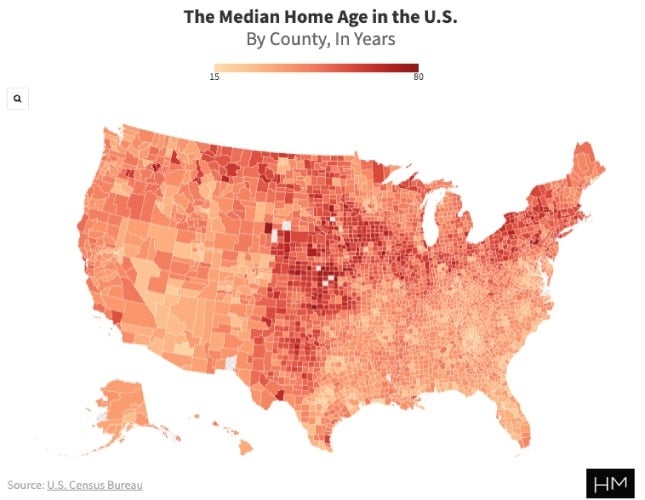
2. Glaring Condition Issues
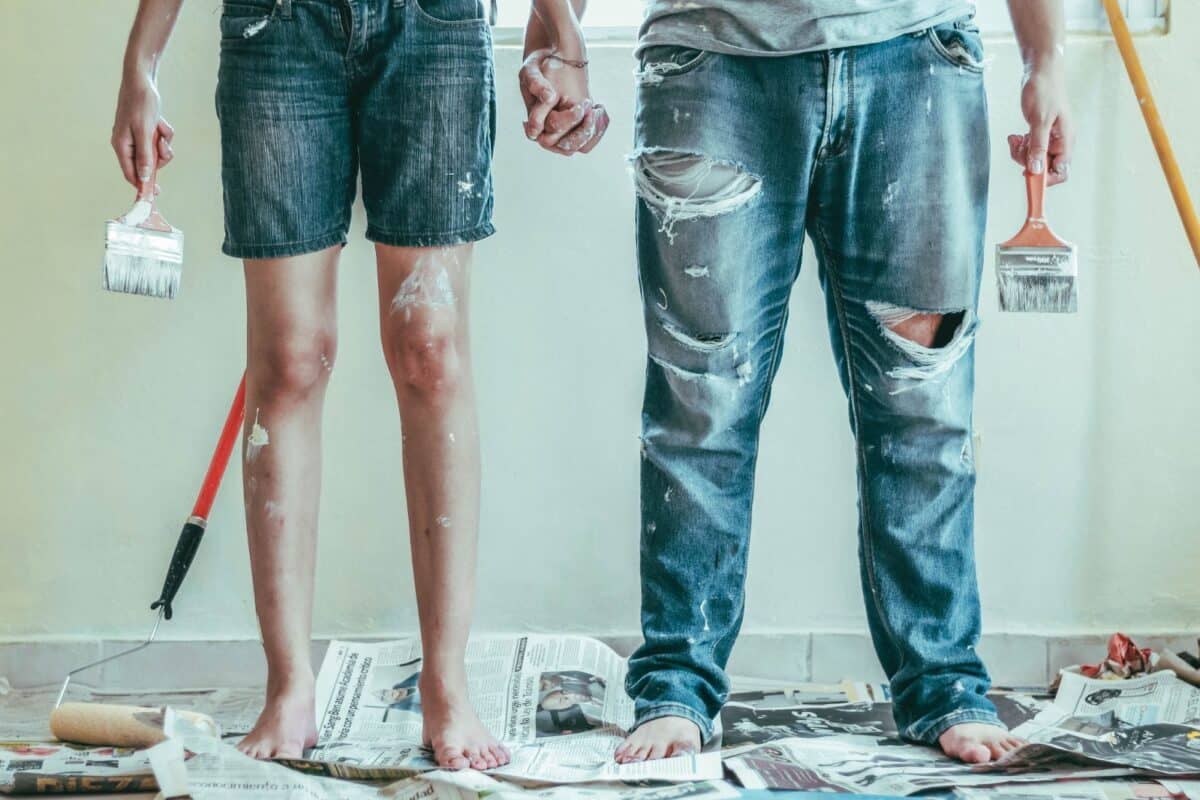
If a potential home looks like it will take work, many buyers avoid it. Small maintenance tasks add up, like flaking paint, a dead lawn, or worn-out carpets. Larger, more noticeable issues, like awkward property features or dated plumbing and electrical work, can make selling extremely difficult. In extreme cases, these issues can even prevent the property from being lendable.
How to Fix the Problem
Ideally, a homeowner and a real estate agent start the process with a meeting where they openly discuss the issues and necessary repairs. The realtor should clearly describe how specific issues can prevent a home from selling and make recommendations for repairs, renovations, and home staging.
3. Poor Pricing or High Fees

Another one of the most common reasons for a house not selling is simple: money. Overpricing a property can turn away good buyers and create a listing that sits on the market without consistent showings. On the other hand, sometimes sellers and agents don’t consider the additional fees when they set the price for a home, like homeowners association (HOA) fees, interest rates, and closing costs. These factors affect a buyer’s purchasing power—and, ultimately, the home’s appeal.
For example, if the current interest rate is 5.25%, the principal and interest per $1,000 financed is approximately $5.50. If the home is in a special tax district and the taxes are $100 a month more than similar homes in the area, the buyer’s purchasing power is $18,000 (($100 / $5.50) x $1,000) less if they were to buy your listing. That’s not chump change.
How to Fix the Problem
Since most buyers put significant thought into their monthly payments for the home, consider how you can adjust the price or offer solutions to make the payments more affordable. If your listing has high HOA fees and taxes, consider offering an option to cover the fees for the first year. If you need to reduce the price of your listing, use our price reduction scripts.
4. Real Estate Market Conditions
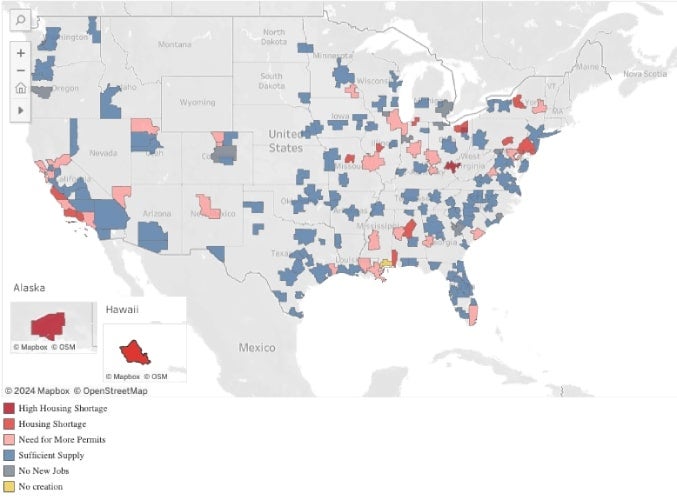
If you’re dealing with a house not selling, one of your first considerations should be the state of the real estate market. Various market conditions could impact the sale of a home, such as an oversaturated market (buyer’s market), economic downturns, and seasonal fluctuations. Plus, local market conditions may make individual properties less appealing, like no convenient access to school districts, changes in local businesses or industries, or even construction projects.
How to Fix the Problem
Unfortunately, neither the homesellers nor the real estate agent can control the state of the real estate market. What you can do is develop a better understanding of the market conditions and learn how to be flexible. You may be unable to make up for a challenging real estate market entirely. Still, you can improve your chances by adjusting your pricing strategy, staging the home, or playing with creative listing descriptions.
5. Poor Communication

Communication is one of the biggest yet simplest reasons why a house is not selling. Both the listing agent and homeseller are responsible for communicating openly and honestly about the property, their expectations, concerns, and questions. When important details or questions go unresolved or are not discussed, the property can be marketed incorrectly, leading to a lack of showings or offers.
How to Fix the Problem
Ideally, the real estate agent should start the process of selling a home with a listing presentation that sets the property and partnership up for success. This presentation includes a market overview, staging consultation, a comparative market analysis (CMA), and an explanation of the marketing plan. It should also include an open conversation about the home’s condition, potential challenges, and how to interpret the marketing responses, showings, and buyer agent feedback.
All hope is not lost if the real estate agent did not start the process this way. If you are the agent, you can (and should) have this conversation at any point—better late than never! If you are the homeowner, you can tell your agent you’d like to meet to review your questions, concerns, and frustrations.
6. Ineffective Marketing
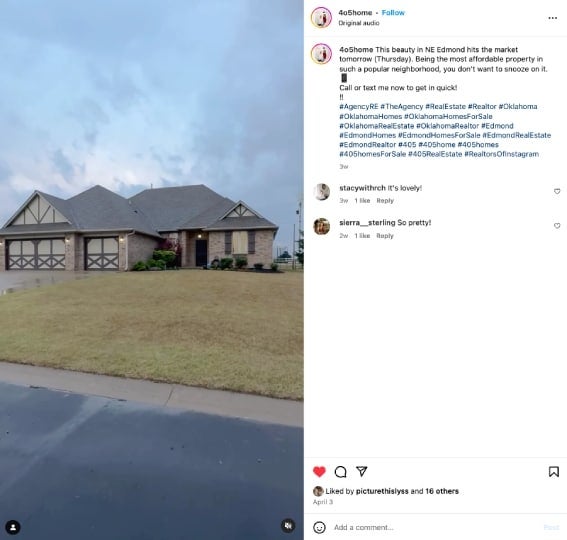
When there are no obvious issues with the home or the real estate market, homeowners are more likely to ask, “Why isn’t my house selling?!” If a home just isn’t generating interest, it is likely not being marketed as effectively as possible. Before you start spiraling into thinking that you or your listing agent doesn’t know what they’re doing, remember that this can happen to even the best and most experienced agents. Plus, it’s often a small detail that can be adjusted or updated to make all the difference.
For example, an agent friend did this with a beautiful home that backed up to a golf course. The home wasn’t getting nearly as many showings as the agent and sellers expected. After a few days, my friend searched my MLS for “Golf Course Communities” and found that the listing didn’t show up. He then discovered that he hadn’t checked the box for Golf Course Communities when he entered the listing into the MLS! Once he fixed this simple oversight, the showings doubled!
How to Fix the Problem
If you suspect something isn’t right with the property’s marketing, start by testing out the process as if you were a buyer’s agent looking for a similar home. Start by searching the MLS and major listing portals. Is your listing even showing up in the search?
If the listing appears accurate, consider making some changes or trying some additional methods to generate traffic to it. For example, try adding some descriptive real estate words to the listing description, creating a short-form video for Instagram Reels or TikTok, or emailing others about the property. For more ideas, check out our free guide and listing marketing plan.
📌 Pro Tip
If you’re a real estate agent who is still learning how to market your listings effectively, make sure to check out our guide on real estate graphic design for the best software, tools, and tips.
7. Low-quality Real Estate Photos
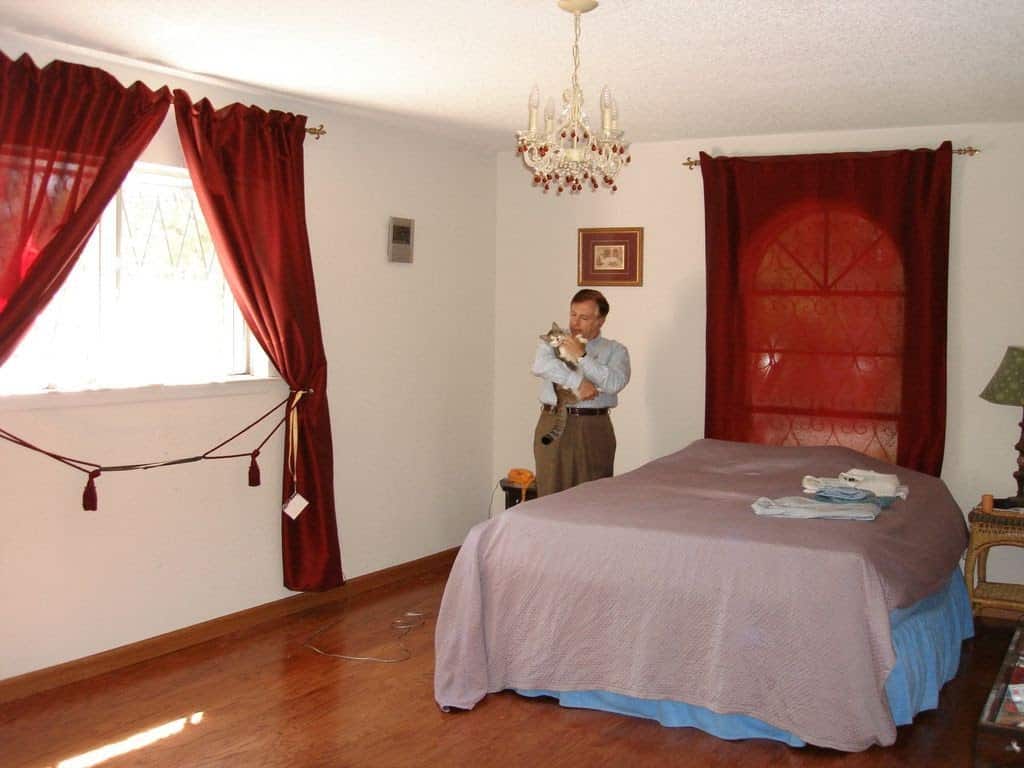
Even though real estate photography is part of marketing, it deserves its own category because it dramatically impacts why a house is not selling. Listing photos are the primary way potential buyers interact with the property, and bad listing photos are often enough to make good buyers write the home off in their minds. Photos should be high-resolution, taken with plenty of light, and positioned at the right angles. This professional display makes a home feel clean, fresh, and ready to move into.
How to Fix the Problem
If you end up with listing photos that aren’t great, hiring a professional photographer to reshoot the listing or using virtual staging software is worth it. Scrutinize each image before you post it on the MLS or social media. Don’t include photos showing cluttered rooms, busy streets, power lines, small or unmanicured yards, or anything else that would give a buyer a reason to eliminate the home from their home tour.
See some examples of what not to do in this 45 Bad Real Estate Photos Agents Actually Posted collection.
8. Home Staging & Curb Appeal

If you have a house that is not selling for any of the most obvious reasons (price, the market, quality of the home), then it might be time to focus on some cosmetics. According to the National Association of Realtors, 20% of buyer’s agents said that a staged home increases the amount of money offered for the property. Even though furniture and pulling the weeds doesn’t change the house’s true value, it can significantly affect the appeal of the property and even the sale price.
How to Fix the Problem
There are many different ways to improve a home’s curb appeal and interior staging. Hiring a professional home stager will get the best results, but it can be pricey. You can make a big impact by using tried-and-true home staging tips like decluttering and adding mirrors. Similarly, simple changes such as trimming shrubs and adding potted plants can add a surprising amount of curb appeal.
For more affordable ideas, see our list of 29 Best Curb Appeal Ideas for Every Budget.
Frequently Asked Questions (FAQs)
Why is my home not selling?
There are various reasons why your house may not be selling. The biggest reasons are the price, the condition of the home, and the real estate market. However, smaller issues can also cause a house to sit on the market, like the marketing strategy, lack of home staging, and bad listing photos.
Why do some houses take so long to sell?
Not all houses are created equal! When a home takes a long time to sell, it could be overpriced, there may be significant repairs or updates that need to be done, or the real estate market may be slow. If you keep asking, “Why won’t my house sell?” then you should meet with a real estate agent or other expert who can review the market and the listing to determine the issue.
What happens if a house can't sell?
A house that can’t sell may have multiple consequences. It is always a frustrating experience for the homeseller, and it can lead to financial distress as they have to continue making mortgage payments and managing maintenance costs. The good news is that there are plenty of ways to fix the problem of a house not selling.
Bringing It All Together
If you or your seller clients ask, “Why is my house not selling?” this guide should give you some strategies to explore. By looking into each option, you can determine the problem and take the necessary steps to sell the house.












Add comment